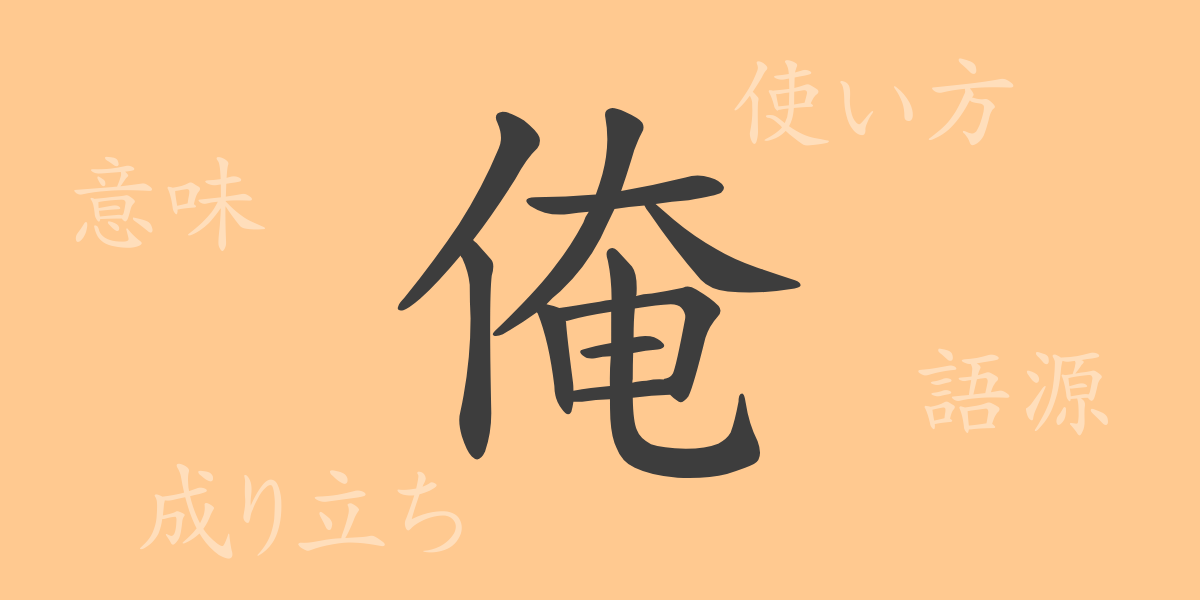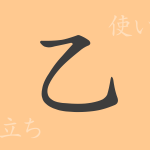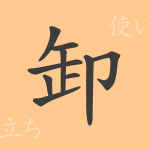“
The Japanese language contains numerous kanji, each with its own unique history and meaning. The single character “”俺”” (Ore) is no exception. Frequently used in everyday conversation, “”俺”” (Ore) is known as a word that expresses a strong individuality when representing oneself. In this article, we will delve into the etymology, meaning, usage, and cultural background of “”俺”” (Ore), exploring its role and appeal as a common kanji in the Japanese language.
The Origin (Etymology) of 俺 (Ore)
The etymology of “”俺”” (Ore) is ancient, dating back to ancient China. Originally used as a first-person pronoun meaning “”I,”” it has changed over time and is now primarily used as a first-person pronoun by men in modern times. Its history reflects the changes in society through the transition of language, like a mirror.
The Meaning and Usage of 俺 (Ore)
In modern Japanese, “”俺”” (Ore) is mainly used as a first-person pronoun by men to refer to themselves. It is often used by young people or in close relationships, giving an impression of intimacy and casualness. It can also be used to express confidence and strength, but depending on the context, it may be perceived as arrogant or rude, so it is necessary to choose the appropriate context when using it.
Reading, Stroke Count, and Radical of 俺 (Ore)
The kanji “”俺”” (Ore) has distinctive features in its reading and structure.
- Reading: The on’yomi reading is “”えん”” (En), and the kun’yomi reading is “”おれ”” (Ore).
- Stroke Count: The kanji “”俺”” (Ore) consists of a total of 10 strokes.
- Radical: This kanji has the radical “”亻”” (Ninben).
Idioms, Phrases, and Proverbs Using 俺 (Ore) and Their Meanings
Idioms, phrases, and proverbs containing “”俺”” (Ore) are not very common, but there is a slang term “”俺系”” (Orekei). “”俺系”” (Orekei) is sometimes used to refer to a strong sense of self-assertion and masculine personality or behavior. Additionally, the word “”俺様”” (Oresama) is occasionally used to express a self-centered and arrogant attitude.
Summary of 俺 ( Ore)
The meaning contained in a single kanji character is deep, and its usage has changed with culture and time. “”俺”” (Ore) is one such example, playing the role of a first-person pronoun in Japanese while carrying various nuances. It expresses casualness and strength when used by men, but it is also a word that requires consideration of the atmosphere and the relationship with the other person. In this way, the charm of the kanji “”俺”” (Ore) lies in its simplicity yet the need for deep understanding and appropriate usage.
“

























